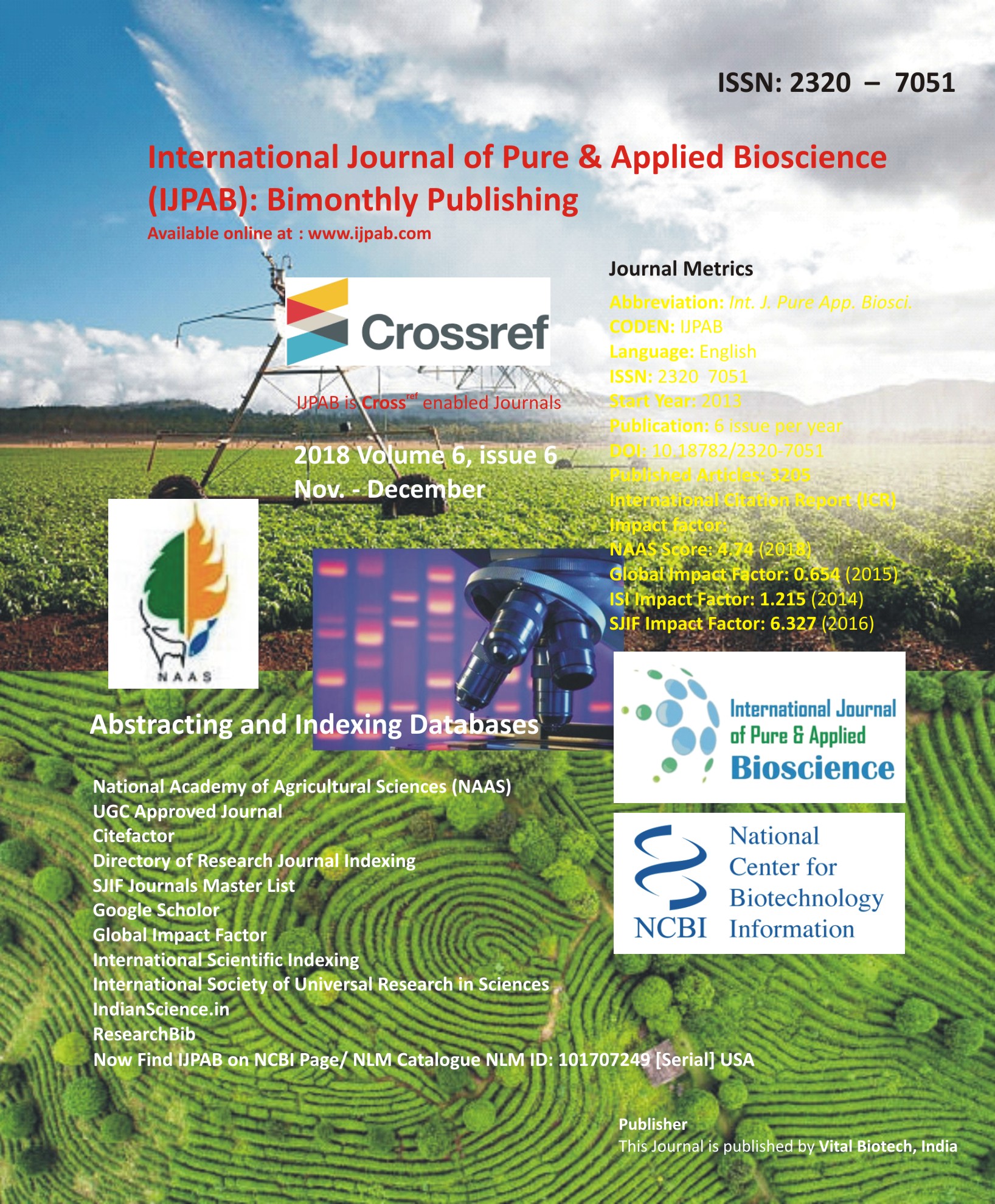
-
No. 772, Basant Vihar, Kota
Rajasthan-324009 India
-
Call Us On
+91 9784677044
-
Mail Us @
editor@ijpab.com
International Journal of Pure & Applied Bioscience (IJPAB)
Year : 2018, Volume : 6, Issue : 6
First page : (1335) Last page : (1347)
Article doi: : http://dx.doi.org/10.18782/2320-7051.7272
Storage Effects on Vitamin C, Anthocyanins, Total Phenolics and Antioxidant Capacity of Processed Jamun Fruit Products
Akhila, H.1* and Umadevi S. Hiremath2
1Department of Food Science & Nutrition UAS, GKVK, Bangalore-560065,
2Professor, Department of Food Science & Nutrition UAS, GKVK, Bangalore-560065,
*Corresponding Author E-mail: akhidbl726@gmail.com
Received: 7.11.2018 | Revised: 12.12.2018 | Accepted: 17.12.2018
ABSTRACT
Jamun (Syzygium cumini L.) is an indigenous minor fruit of India. This belongs to family Myrtaceae. Processed products of jamun fruits gaining popularity among the consumers due to nutritional and antioxidant properties of fruits. The retention of antioxidant and phenolic properties of the processed products were studied at room and refrigeration temperature. Loss of vitamin C, anthocyanins, total phenolics and antioxidant activity was observed in processed products of jamun fruits like jam, squash and nectar of different variations; during storage period of 90 days at room and refrigeration temperature. Retention of vitamin C, total anthocyanins, total phenolics and antioxidant activity was observed in refrigerated temperature than at room temperature. Higher values of vitamin C was noticed in nectar (9.86-9.8mg/100g) followed by jam (7.7- 7.3mg/100g) and squash (3.65-3.59mg/100g). Better retention of anthocyanin content was observed in jam (132-128 mg/100g) followed by squash (128-120 mg/100g) and nectar (97-85 mg/100g); Squash had higher values for total phenolic content (300-289mg/100g GAE) followed by nectar (260-252mg/100g GAE) and jam (211mg/100g GAE). Significant decline in antioxidant activity of jam (73-23mg/100g of vitamin C equivalents), squash (82-28mg/100g of vitamin C equivalents) and nectar (85-32mg/100g of vitamin C equivalents) were observed at room temperature. Results of the storage study indicate that reduction of antioxidant activity, total phenolic content, total anthocyanins and vitamin C content, during storage at room temperature can be prevented by storing the jamun fruit products at refrigeration temperature.
Key words: Minor fruit, processed products, antioxidant capacity, anthocyanins, vitamin C.
Full Text : PDF; Journal doi : http://dx.doi.org/10.18782
Cite this article: Akhila, H. and Hiremath, U.S., Storage Effects on Vitamin C, Anthocyanins, Total Phenolics and Antioxidant Capacity of Processed Jamun Fruit Products, Int. J. Pure App. Biosci.6(6): 1335-1347 (2018). doi: http://dx.doi.org/10.18782/2320-7051.7272

